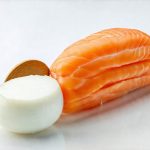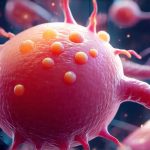Gut stress—whether from illness, intense medication like antibiotics, prolonged psychological stress, or dietary imbalances—can profoundly impact appetite. It’s not uncommon for individuals experiencing gut disruption to find themselves feeling consistently full, nauseous, or simply lacking the desire to eat, even when they intellectually understand the need for nourishment. This isn’t merely a matter of willpower; it’s a complex physiological response where the intricate communication between the gut and brain has been disrupted. The gut-brain axis, often referred to as our “second brain,” is responsible for regulating hunger, fullness, and food preferences, and when compromised, can dramatically alter these fundamental processes. A diminished appetite isn’t just uncomfortable; it hinders recovery, weakens the immune system, and reduces overall quality of life.
Rebuilding an appetite after gut stress requires a gentle, patient, and multifaceted approach that focuses on restoring digestive function, calming the nervous system, and re-establishing a positive relationship with food. It’s about more than simply forcing yourself to eat; it’s about creating conditions where your body feels safe and capable of receiving nourishment again. This involves understanding the underlying mechanisms at play—how gut stress affects appetite regulation—and employing strategies that address these issues specifically. There isn’t a one-size-fits-all solution, as individual experiences vary widely, but there are core principles and practical steps you can take to support your body’s natural healing process and reclaim your enjoyment of food. If you have been experiencing symptoms for some time, it may be helpful to rebuild trust in your body again.
Understanding the Gut-Appetite Connection
The link between gut health and appetite is far more significant than many people realize. Our digestive system isn’t just responsible for breaking down food; it actively communicates with the brain via several pathways, influencing hunger signals and satiety cues. – Hormones like ghrelin (which stimulates appetite) and leptin (which suppresses it) are significantly impacted by gut health. Dysbiosis—an imbalance in the gut microbiome—can disrupt hormone production and signaling, leading to altered appetite regulation. – The vagus nerve acts as a direct line of communication between the gut and brain, relaying information about digestive processes and nutrient status. Inflammation within the gut can irritate the vagus nerve, affecting its function and impacting appetite signals.
– Finally, neurotransmitters like serotonin (often called the “happiness hormone”) are largely produced in the gut. A healthy gut microbiome is essential for optimal serotonin production, which plays a role in mood regulation and appetite control. When gut stress occurs—whether from illness or other sources—these communication pathways can become disrupted, leading to loss of appetite, nausea, bloating, and other digestive symptoms. This disruption isn’t just about physical sensations; it can also create emotional associations with food, making eating feel anxiety-inducing or unpleasant. Sometimes, a simple gut reset is all that’s needed to begin the journey back to health.
The type of gut stress experienced matters too. Antibiotics, while life-saving in many cases, can drastically alter the gut microbiome, killing off both beneficial and harmful bacteria. This can lead to a rapid decline in microbial diversity, impacting digestion and nutrient absorption. Similarly, prolonged periods of stress trigger the release of cortisol—the “stress hormone”—which can disrupt digestive function and suppress appetite. Food sensitivities or intolerances can also contribute to gut inflammation, creating chronic discomfort that diminishes food intake. Recognizing the specific source of your gut stress is crucial for tailoring a recovery plan that addresses the underlying cause. It’s important to remember that rebuilding appetite isn’t just about getting calories back in; it’s about restoring the function of your digestive system and re-establishing a healthy relationship with food. If antibiotics are the culprit, you may need to rebuild microbiome specifically.
Gentle Reintroduction Strategies
Successfully navigating appetite restoration requires a slow, patient, and mindful approach. Avoid the temptation to jump into large meals or force yourself to eat foods you dislike. This can exacerbate symptoms and reinforce negative associations with eating. Instead, focus on gradual reintroduction of easily digestible foods in small, frequent increments. – Begin with liquids like broth, herbal teas, or diluted juice – these are gentle on the stomach and provide hydration. – Gradually introduce soft, bland foods such as well-cooked rice, mashed potatoes, or applesauce. These are easy to digest and less likely to cause discomfort.
– As tolerance improves, slowly add in small portions of lean protein (e.g., boiled chicken, fish) and healthy fats (e.g., avocado, olive oil). Avoid highly processed foods, sugary drinks, and large amounts of fiber initially, as these can be difficult to digest when the gut is compromised. The goal isn’t to eat a ‘perfect’ diet; it’s to find foods that you can comfortably tolerate and gradually expand your options over time. Prioritize small, frequent meals or snacks throughout the day rather than three large meals. This helps maintain blood sugar levels and prevents overwhelming the digestive system. Pay attention to how different foods make you feel – both physically and emotionally—and adjust your diet accordingly. Keeping a food diary can be helpful for identifying triggers and tracking progress. You may also need to train your gut over time, increasing tolerance levels.
Addressing Nausea & Digestive Discomfort
Nausea is a common symptom following gut stress, further inhibiting appetite. Several strategies can help manage nausea and improve digestive comfort. – Ginger has been shown to effectively reduce nausea; try ginger tea, ginger chews, or grated fresh ginger in your food. Peppermint oil aromatherapy may also offer relief for some individuals. – Probiotics—beneficial bacteria that support gut health—can play a role in restoring the microbiome and reducing inflammation. Consider incorporating probiotic-rich foods like yogurt (if tolerated) or kefir into your diet, or discuss probiotic supplementation with a healthcare professional.
– Practicing mindful eating techniques can also help minimize nausea. This involves paying attention to your body’s signals of hunger and fullness, chewing food thoroughly, and creating a calm and relaxed environment for meals. Avoid eating when stressed or anxious, as this can worsen digestive symptoms. If you experience significant bloating or gas, consider incorporating digestive enzymes into your diet – these supplements help break down carbohydrates, proteins, and fats, easing the burden on your digestive system. Remember to consult with a healthcare professional before starting any new supplement regimen.
Calming the Nervous System
The gut-brain connection is bidirectional—meaning that stress can impact gut health and gut health can influence mental state. Chronic stress exacerbates digestive issues and suppresses appetite, creating a vicious cycle. Therefore, calming the nervous system is essential for appetite restoration. – Incorporate relaxation techniques into your daily routine: deep breathing exercises, meditation, yoga, or spending time in nature are all effective ways to reduce stress and anxiety.
– Prioritize adequate sleep – aim for 7-9 hours of quality sleep per night. Sleep deprivation disrupts hormone balance and weakens the immune system, further compromising gut health. – Explore gentle movement: light exercise like walking or stretching can help reduce stress and improve digestive function. Avoid intense workouts initially, as these can put additional strain on the body. Consider practices such as gratitude journaling or spending time with loved ones – fostering positive emotions can have a profound impact on overall well-being and appetite regulation. If you are feeling overwhelmed by stress, remember to maintain gut health.
Rebuilding Positive Food Associations
Gut stress can often lead to negative associations with food—fear of discomfort, anxiety around eating, or simply a lack of enjoyment. Rebuilding a positive relationship with food is crucial for long-term recovery. – Focus on the pleasure of eating: Choose foods that you genuinely enjoy, even if they’re simple and bland. Savor each bite and appreciate the sensory experience of eating. – Avoid restrictive dieting or labeling foods as “good” or “bad.” This can create unnecessary stress and anxiety around food choices. Instead, focus on nourishing your body with a variety of wholesome foods that support your health.
– Experiment with different flavors and textures: As your tolerance improves, gradually introduce new foods into your diet – spices, herbs, fruits, and vegetables—to reignite your palate and rediscover the joy of eating. Remember to listen to your body’s signals and adjust accordingly. If you find yourself struggling with negative food associations or disordered eating patterns, consider seeking support from a registered dietitian or therapist specializing in eating disorders. Rebuilding appetite isn’t just about physical nourishment; it’s about restoring a healthy and balanced relationship with food that supports both your physical and emotional well-being. As travel can disrupt gut health, consider how to handle travel if you are planning trips. Finally, don’t be afraid to reintroduce foods slowly and carefully.


















